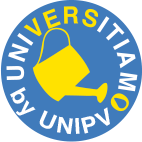The project
Project Description: The project is focused on an innovative approach (tools and methods) able to integrate different kind of data (quantitative, qualitative, structured, unstructured) to optimize in terms of predictive capacity, discriminatory and stability of the results the predictions of statistical models employed in financial risk management, with a particular attention on credit risk, operational risk and also internal fraud detection and anti-money laundering.
The current regulations and controls of the supervisors (Bank of Italy), require that financial institutions adopt accurate and reliable tools and methodologies to mitigate financial risks and this is possible on the one hand using all the information available and on the other hand developing new models, called “data science models” able to maximize the accuracy of the results, to deal with different kind of data, to take uncertainty into account.
The idea for this project comes from a scientific paper “Statistical merging of rating models” published in the journal International Journal of the Operational Research Society, where the integration of qualitative and quantitative data to estimate the probability of failure of small and medium enterprises, using both classic models is dynamic, involves a significant improvement in terms of correct prediction of the event default, a better ability to discriminate between “good” and “bad”, stable results and a minimization of error rate with particular reference to the false negative rate. The methodological idea is directly extended to the study of the probability of default for individuals.
Empirical evidence on rating estimation are collected on a real data provided by Credit Rating Agency Reform within the European project MUSING funded in the Sixth Framework Program.
The proposed methodology is also interesting for churn risk, propensity models and lifetime value estimation in marketing applications.
An additional opportunity is linked to the use of internal and external data for the study of the problem of money laundering using social network analysis. Some results on the application of social networks for anti-money laundering were presented at the Ministry of Economy and Finance and in the Financial Intelligence Unit of the Bank of Italy.
The problem of integration of internal data with external data and open data is a natural extension of this project idea, therefore, also the government may be interested in the use of our methodological proposal to create models more efficient and accurate.
The project is supported by a scientific committee which includes international experts in the sector, with particular reference to the use of data science models for risk prediction (Prof. Antonietta Mira, Interdisciplinary Institute of date science at the University of Lugano; Prof. Omiros Papaspiliopoulos, Director of the Master in Data Science University of Barcelona; Prof. Raffaella Calabrese, University of Essex), models to support public administration (Dr. Jukka Onnela, Assistant Professor School of Public Health, Harvard University), simulation methods and computer science (Dr. Rossella Conte, CNR Vice President and head of the Laboratory of Agent Based Social Simulation at the Institute for Cognitive Science of Technology), innovative methods of risk prediction (Credit Research Centre Edinburgh University; Prof. Peter Sarlin Hanken School of Economics and Director of RiskLab Helsinki Finland).
LINK
European Project
MUSING – MUlti-industry, Semantic-based next generation business INtelliGence http://economia.unipv.it/cibie/UPV%20Musing%20web%20page%20english.htm
SYRTO – Systemic Risk Tomography http://syrtoproject.eu/research-team/
Anti-money laundering (in italian):
http://www.dt.tesoro.it/it/news/antiriciclaggio_transazioni_finanziarie.html
http://www.scuola24.ilsole24ore.com/art/universita-e-ricerca/2015-03-24/da-tre-universitari-pavia-sistema-scovare-riciclaggio-danaro-162416.php?uuid=ABUItMED
http://www.rai.tv/dl/RaiTV/programmi/media/ContentItem-355c6fef-77ad-492a-9042-c61d0b7650ba-tgr.html#p=0
http://ischool.startupitalia.eu/34999/ischool-2/ecco-come-tre-studenti-universitari-combattono-il-riciclaggio-di-denaro/
http://www.italianews24.it/video/162685/Pavia-studenti-creano-un-metodo-antiriciclaggio
http://www.adnkronos.com/fatti/pa-informa/economia/2015/03/26/antiriciclaggio-dall-universita-pavia-nuovo-modello-per-analisi-delle-transazioni-finanziarie_Pi6I79eKwfYwsb8JwCcecN.html
Goals
The funds raised to support the project will be employed to finance scholarships for outstanding graduates or PhD students with economic and quantitative skills.
The annual cost for a scholarship amounts to euro 25000.
The project needs to analyze real data to show the goodness of our methodological proposal.
The first phase of the project involves the financing of a scholarships for the study of the methodology of integration of data and computational algorithms; the second phase involves the use of real data provided by financial institution interested in the use of the proposed methodology ( two scholarships for data analyst).
Video
Rewards
Donations exceeding EUR 5.000
The donor's name will be reported in working papers and in presentations made at national conferences
Donations exceeding EUR 10.000
Tthe donor's name will be reported in papers presented in international conferences and reported in the section of the acknowledgments.
Donations exceeding EUR 20.000
Tthe partners will become a member of the Advisory Board. The partners will be listed in the acknowledgments of articles published in international journals. A copy of the paper will be sent to each partner by email. Furthermore, the partner, if interested will be involved as chair in organised sessions in international conferences.
Team
Silvia Figini
Prof. | FounderSilvia Figini
Prof. | FounderTeam
Team
Backers
-
Antonietta
-
Res srl srl
-
Anonymous
-
Anonymous
-
Anonymous
-
Anonymous
-
Anonymous
-
Anonymous
-
Anonymous
-
Anonymous
-
Anonymous
-
Anonymous
-
Anonymous
-
Anonymous
-
Anonymous
-
Anonymous
-
Anonymous
-
Anonymous
-
Anonymous
-
Anonymous
-
Anonymous
-
Anonymous
-
Anonymous
-
Anonymous
-
Anonymous
-
Anonymous
-
Anonymous
-
Antonio




